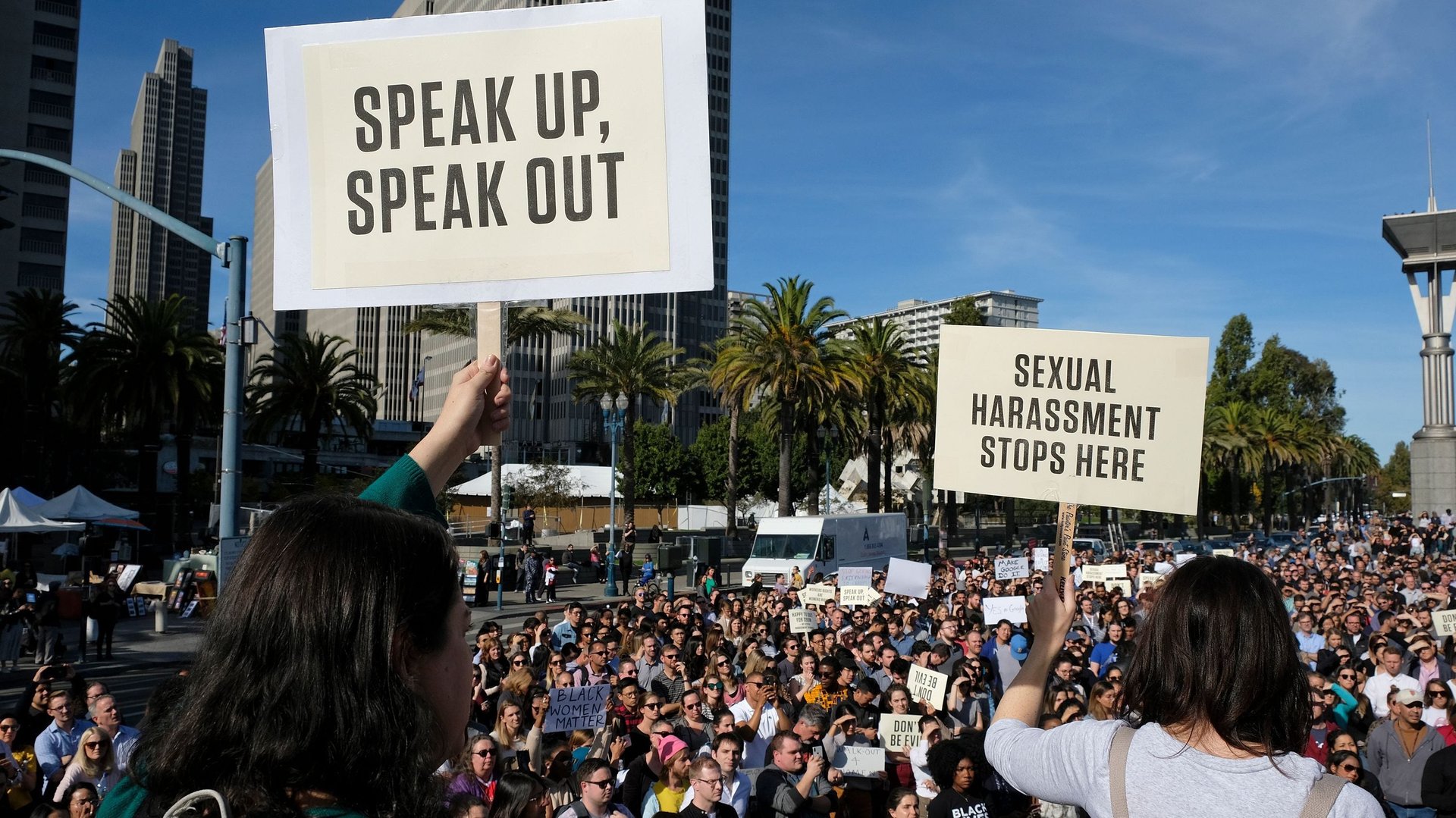Our best hope for companies with social conscience is their workers
It’s hard to imagine a story able to wrest our attention away from the ominous scenes in Paradise, California, and yet it landed, just in time for Thanksgiving, in the form of an investigative piece from the New York Times. The story documents how Facebook executives ignored, then attempted to hide, and then twisted information about how Russia used its platform to influence the 2016 US presidential election.


It’s hard to imagine a story able to wrest our attention away from the ominous scenes in Paradise, California, and yet it landed, just in time for Thanksgiving, in the form of an investigative piece from the New York Times. The story documents how Facebook executives ignored, then attempted to hide, and then twisted information about how Russia used its platform to influence the 2016 US presidential election.
If anyone in the overall disheartening story can be called heroes, it’s not the executives with the most influence, access, and power. It’s the employees on the front line who witnessed malfeasance, bypassed protocol to bring it to the highest levels of the company, and were ignored or told to look the other way.
This is not the first time in recent months that we have witnessed the power of employee voice in driving companies to consider the social repercussions of their actions.
Googlers demanded the company withdraw from a Pentagon contract to develop AI for drone warfare. Amazon workers found their voice by questioning the sale of face recognition technology to law enforcement, including ICE. The CEO of Hyatt responded forcefully to the concern of both civil rights groups and front-line workers over the use of the hotel by hate groups. Amazon heard again from employees and backed down on unpopular elements of its recently announced compensation system. These actions, and many more like them, demonstrate employees as a force to reckon with.
Companies should count these employee demands as a blessing—or at least a clear window into risks that, if ignored, may rebound to the firm.
The rules of effective engagement with employees are still emerging. But it’s the clear alignment between the economic security of workers and the company’s financial health and long-term reputation that makes workers powerful. Who cares more about the reputation of the company than its employees? No one. Who knows more about the conduct of actors that are giving the company a bad name on the street? #MeToo. Who is your best agent in assessing efficiency of the machinery, where to tighten the pipe to reduce emissions, how to structure the schedule to enable employees to balance work and childcare? Also your employees.
Yet companies have not yet leveraged worker insight as much as they could. Employees are in a unique position to connect the inside and the outside—what investors like to call environment, social, and governance (ESG) risk.
For instance, earlier this month, Google employees orchestrated a walkout following a report on the golden parachute granted a high-level executive facing “credible” claims of sexual harassment. It was a turning point in employee voice for a couple reasons: The protest succeeded in influencing how the company handles these claims, and the protestors expressed solidarity with striking hotel workers, who work in a starkly different environment than Silicon Valley. But one of the demands placed on the table by the organizers of the #GoogleWalkout was to add an employee to the Board of Directors, and while Google acceded to a couple of the demands of the protestors, it did not agree to this one.
At least not yet.
While employee representation on boards is the law in Germany and not uncommon in Scandinavia and among employee-owned firms, in the US, to add an employee to a public company board is generally seen as a bridge too far. It falls outside conventions about the role of the board with its focus on shareholder value, and norms about director independence.
But as more “externalities”—what economists call problems like inequality, human rights, and climate change—rebound to the business, and as the complex negotiation of fairness, equity, inclusion and environmental sustainability is seen as instrumental to long-term success by influential voices, including a critical mass of investors, and when the health of the commons lies in the balance, is there much risk in putting your biggest ally next to you in the driver’s seat?
Attracting, retaining and growing talent is a remarkably important need across all industries, even when you have workers that seem easy to replace. (They aren’t.) So watch this space. Google has already proven to be a first mover, and their employees take the mission of “do no harm” quite seriously.
Listening carefully to employees will enable companies to anticipate real, long-term risks to the enterprise, and to refocus on what business does at its best: create useful products and services without burning up the ozone layer, put people to work without creating winners and losers, and secure the brand, by assuring the company aligns actions with intentions.
Judith Samuelson is a vice president at the Aspen Institute.